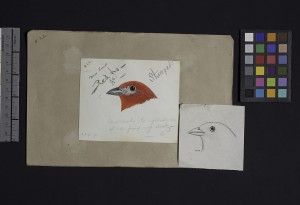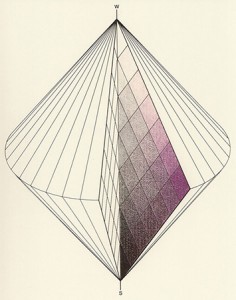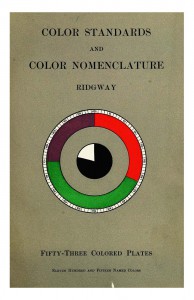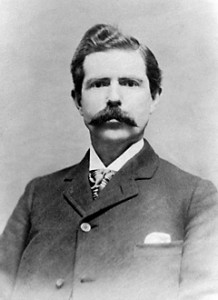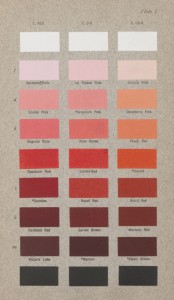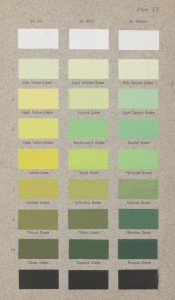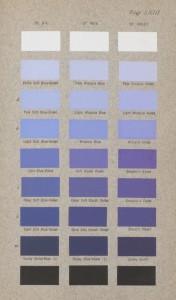Robert Ridgway (Illinois, 1850-1926) was an ornithologist who, next to hundreds of publications on bird species, wrote two books on color-classification. In the first book, A Nomenclature of Colors for Naturalists (1886), was relatively simple, but already gave 186 colors their own names, which was different to how colors were described at that time; usually they were named and described subjectively.
Looking for a way to create a more advanced and expanded work, Ridgway published his second book in 1912: Color Standards and Color Nomenclature (link to the book itself), with 1,115 new names for colors. This way it was a lot easier to communicate about specific colors between taxonomists in all kinds of scientific fields. Ridgway’s system is still used a lot in taxonomy to this day.
The figure above shows how Ridgway visualized his coloursystem. One could imagine a two-dimensional, straight line, which has a lightness-gradient, going from white to black. This line doesn’t contain any colour, but as soon as it’s imagined as a three-dimensional shape, the line is surrounded by all 1,115 colours. The colours Ridgway specified were split up in thirty-six individuals, called the “pure colours”. The different teints in between the white, black, and “pure colour”, were all presented and named on the fifty-three hand-painted colourplates (as shown below). Though most of them were very well preserved, thanks to special care being taken to make them durable, some did slightly change hue. Sadly, an exact description on the procedure of how the colours were mixed is missing in the book, making the colours that changed, lost.
